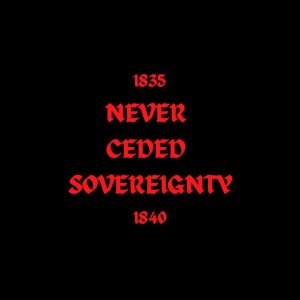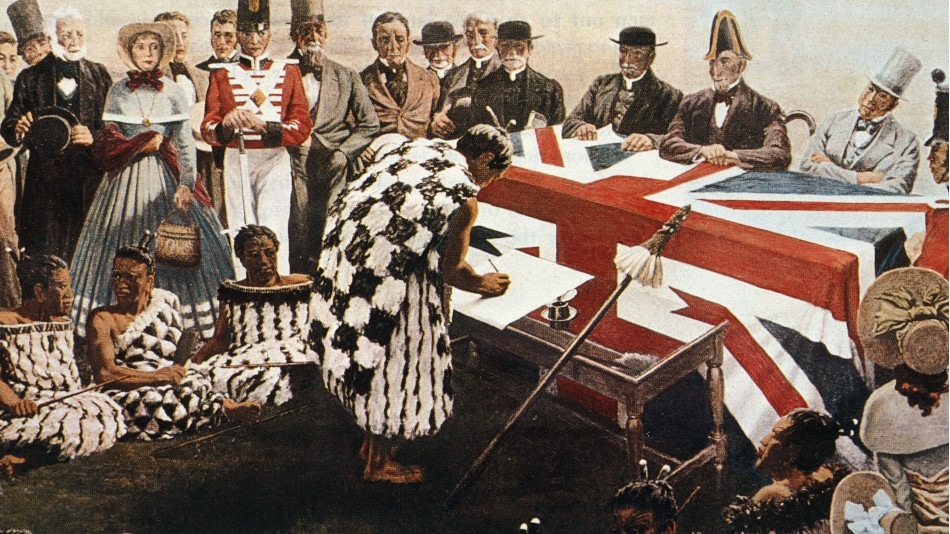He Aotearoa Hou

Eru Kapa-Kingi
Author

Rawiri Waititi was recently asked in a live interview on NewsHub whether he respected Parliament – this is my reaction to that question.
Initially I thought there’d be no point in trying to explain exactly why that question is so problematic. Such would require Pākehā understanding the fundamentals of Te Tiriti, as well as the complexity and strategy behind the pursuit of tino rangatiratanga.
Our pursuit pervades all places and spaces, as it should, if we are to walk towards the sun and get to our Hawaiki Hou, to our Aotearoa Hou. No stone left unturned, no take left unsaid, no whakaaro left unchallenged. In the coloniser’s house, and out on the marae ātea. Ka whawhai, ka whawhai.
The question was fundamentally and morally wrong. The question should be whether Parliament respects Te Tiriti and tino rangatiratanga.
There is a falsehood of Parliamentary sovereignty in the legal system of Aotearoa. This “principle” essentially maintains Parliament is King, and no one should question its supremacy.
It is something I had to endure learning about at law school, and during that time the source of that sovereignty (if any) was never explained or discussed. This was extremely frustrating because, at that time, I knew I was looking for an answer. But, at the same time, I couldn’t see the preceding question in my mind. The silence around the topic disempowered my ability, as well as that of my Māori peers, to think and imagine otherwise.
I felt deep down in my puku there was an integral kōrero missing. It was truly just a “move along, nothing to see here” approach, embedding the lie that everything was good after Te Tiriti was signed and it still is today, and we shall not dare dig any deeper.
The only public institution that has had the guts to address this gaping hole in the legitimacy of our legal system is the Waitangi Tribunal in its recent reports on Te Paparahi o Te Raki, emerging from 2014. The Tribunal meticulously evidences our truth that Māori in Te Tai Tokerau did not cede sovereignty, or rangatiratanga in signing Te Tiriti in 1840. I note here this truth cannot be limited to iwi of the North – indeed most if not all iwi signed Te Tiriti under identical circumstances.
In so writing the Tribunal tears down the thin veil guarding Parliamentary sovereignty, as enjoyed by the Crown in Aotearoa for so long. This then begs the question (ignored by successive Governments since 2014) – where does the mana of Parliament actually come from?
Pākehā academics can’t come up with a legitimate or consistent answer. That’s because there’s isn’t one. This mana could not have come from Te Tiriti, because Te Tiriti affirms and protects tino rangatiratanga of hapū and iwi (or Māori sovereignty), and merely grants powers to the British Crown to govern its subjects and provide equal rights to Māori where appropriate.
You might then ask, why train to become a lawyer for law inherited from the British? Why support Te Pāti Māori as a political entity within the very system which does not hold any water in terms of legal, political and moral authority?
The reality is we have had no plausible or feasible alternative to the system which was violently imposed on us after 1840, without question or permission. The growing numbers of Pākehā subjects and settlers in those early times, and the Crown’s consistent and systemic refusals to heed countless pleas by tūpuna Māori to honour Te Tiriti, made going back to the truth impossible. This is a reality we have inherited, but our mokopuna do not have to.
One could also pre-empt the argument that Māori have passively accepted the system by participating in it for the greater part of two centuries. That would be like saying a homeless person must accept and live with their situation forevermore because they have been without a home for so long, disregarding the fact they have been violently disenfranchised by a system built on inequity, and their near powerlessness to make any fundamental change to their reality. That person also having been hypnotised by their circumstances and the power structures around them to think the bridge they’re living under, is a nice home, and they should never even think about questioning that.
There’s also the extreme cry anarchy response. “So what? You reckon just abolish Parliament as we know it?! That’s so radical! Not to mention unrealistic! That would create chaos!”
The point is not to turn the system on its head overnight. In any case that is out of reach and would achieve nothing. Everyone, Pākehā and Māori, would need to buy into a new reality, which will take time (ironically, an opportunity the British Crown never provided to Māori in the first instance). This buy in process would set the platform for the belief of Pākehā in the need for a morally founded recalibration of power in Aotearoa, and the belief of Māori in our own rangatiratanga and our right to be the ariki of our own waka. The sum of this equation is Tangata Whenua and Tangata Tiriti co-existing in an Aotearoa Hou, where everyone lives freely and with absolute dignity. Everyone is welcomed and no one goes hungry, just like if you were on a marae.
Turning the nation’s mind to this truth can also produce practical benefits today. At the very least, an awareness of the injustice fuelling the machine of Government could encourage greater honouring of tangata whenua rights through political means currently at an arm’s length. Examples include devolving state care powers to iwi and hapū; or creating a genuinely independent and properly resourced Mokopuna Authority to be controlled and managed by Māori.
Nā, i konei ka ahu atu ngā whakaaro ki te kōrero rongonui e mea ana; whāia te iti Kahurangi, ki te tuohu koe, me he maunga teitei. At this point my mind turns to the well-known proverb; reach for the most treasured of stars, and if you bow your head let it only be to a great mountain.
I see Tiriti-centric constitutional transformation as te iti kahurangi, as the most treasured star. Internal system changes are the maunga teitei, the great mountains. Heoi anō, the truth is some of us have got lost in the maunga and can’t see the stars. But it’s not one or the other, it’s one with the other.
We must continue to climb those maunga, and eventually Tāwhiri will carry us home, to our iti kahurangi, to our salvation, if we believe. The only difference between a radical thought and an acceptable one is time and familiarity. Nō reira, the first step is to say it and keep saying it, until we believe it, and then unashamedly carry our destiny of truth wherever we go, with neither fear nor compromise.
As Te Atua Wera foresaw before the initial signing of Te Tiriti in 1840, Te Tiriti will be transmogrified into a new beast that will devour and reduce te iwi Māori to its corpse state, however, two centuries henceforth the truth will rise from the darkness and bring forth justice to all.